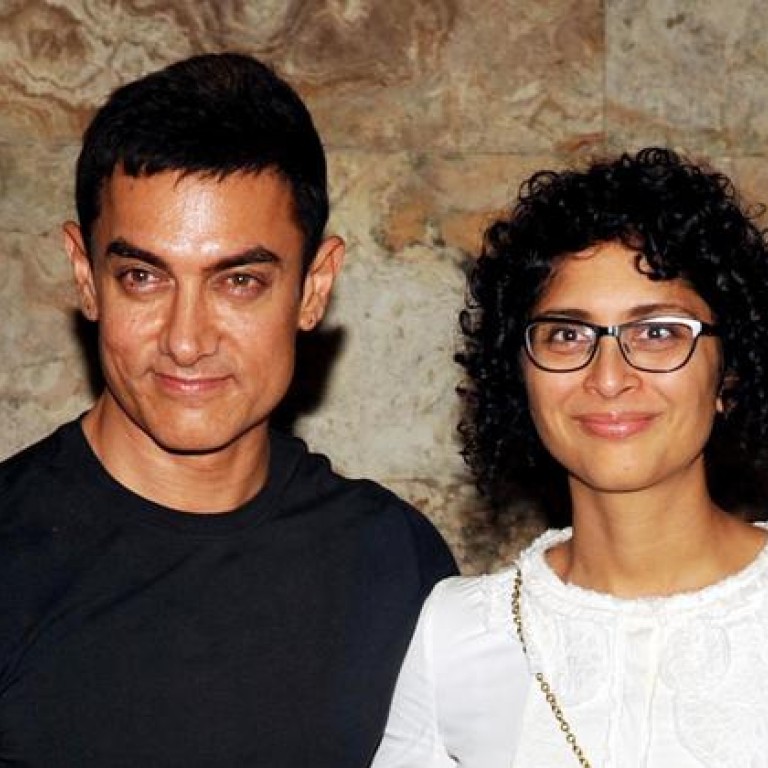
Womb service: How surrogacy still carries stigma in India
A growing number of people in India are turning to surrogacy, but a lack of regulations and entrenched stigma still pose problems

While it still carries considerable stigma in the country, the celebrities' choice has eased the way for other couples to do the same.
They made it seem like a perfectly acceptable way of bringing a baby home.
Even so, critics say the practice is prone to abuse because of the lack of regulation and the severe wealth gap there.
Aamir Khan surprised India when he and his wife, film director Kiran Rao, announced in 2011 that their baby son, Azad, was born to a surrogate. The actor already had children from his first marriage, but Rao opted for surrogacy as a "last resort" after suffering a miscarriage.
"The publicity around their case helped to clear up a lot of misconceptions. They made it seem like a perfectly acceptable way of bringing a baby home. That's the power of celebrity," says Dr Kaberi Banerjee, a fertility specialist in New Delhi.
Then, in May this year, Shah Rukh Khan and his wife, Gauri, announced that after trying to have a child for two years, their baby son, AbRam, had been born in Mumbai to a surrogate. The couple have two other children.
Surrogacy is a US$2.3 billion business in India. Its established medical infrastructure, coupled with a surfeit of poor women desperate to earn some money by renting their wombs, have turned the country into a preferred destination for childless couples from around the world looking for a low-cost, straightforward way of becoming parents.
But because the procedure is unregulated, it's open to malpractice. A study by the Centre for Social Research in New Delhi last year found that most of the 100 surrogate mothers interviewed did not understand the procedure or the contract they signed with commissioning parents and fertility doctors.
While awaiting the births, they are often forced to live in guarded homes and given only limited access to their families.
"We found that 60 per cent were illiterate. That means they are easy to exploit because they won't understand the possible medical complications," says the centre's director, Dr Ranjana Kumari.
Other controversies surround the process, including issues of gender selection and caste.
A survey last year by the Delhi women's group Sama showed Indian couples were prepared to pay more for a light-skinned surrogate from the right caste.
The survey said couples often used the same adjectives to describe the kind of surrogates they wanted as those used in matrimonial ads - fair, beautiful, high caste.
"Indians are obsessed with religion, caste and fair skin. Even when they are told that the baby won't have any of the surrogate's characteristics, they still feel that some mingling of blood and tissue in the womb will affect the outcome," says Deepa Venkatachalam, Sama's programme co-ordinator.
But Dr Naina Patel, who runs a fertility clinic in Ahmedabad, says most commissioning parents simply want the surrogate to be healthy.
"They sometimes ask about the caste, but their main concern is that she be healthy and follow a healthy diet while carrying the baby," Patel says.
But in what is manifestly an unequal relationship, it is the commissioning parents who call the shots and set the conditions. Surrogate mothers are usually too poor and powerless even to demand the right to be with their families during the pregnancy.
Women's groups point out that this inequality extends to the spousal relationship. When the fee is paid, it is usually the husband who decides how to spend it.
"In some cases, he uses it to pay off a loan, just fritters it away or starts some ill-conceived business which fails. The woman often has no say," says Brinda Karat, a Communist Party politician and women's activist.
That is why many surrogates, such as Sangita Rana, offer their wombs a second or third time.
"My husband started a business selling packed meals to office workers. It failed, and he lost the money I made from having a baby. So I'm here to do it again," Rana says while awaiting a check-up at the Delhi Research Centre.
Fearing being ostracised, they carefully hide this arrangement. "My husband tells our relatives that we are moving for a year because of his job. They would refuse to speak to us if they knew what I do," Rana says.
So, while becoming a parent by surrogacy is losing its stigma for celebrities, earning money this way is still a disgrace.

